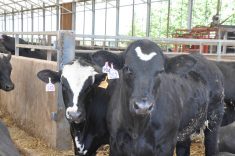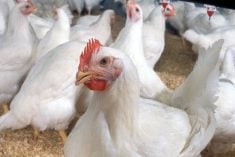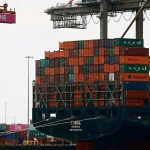Reuters – Thousands of sheep and cattle that were stuck on a ship forced to abandon passage through the Red Sea in January have begun disembarking at the same Australian port they left nearly six weeks prior, Australia’s agriculture ministry said Feb.12.
The MV Bahijah sailed from Fremantle, Western Australia on Jan. 5 for Israel with about 14,000 sheep and 2,000 cattle on board, but diverted due to the threat of attack by Yemen’s Houthi militia before being ordered home by the Australian government.
The government later rejected an application by the exporter to ship the animals to their destination in Israel by sailing around Africa, a nearly five-week journey that would have extended the livestock’s time on board to more than two months.
Read Also

Manitoba sunflower plant gets local owners
Scoular’s sunflower and bird feed plant in Winkler, Man., bought by Orenda Commodity Services Ltd. out of Ste. Agathe.
The livestock will be “taken by truck from Fremantle Port to appropriate premises in Western Australia,” the agriculture ministry said.
The unloading was expected to take several days and the animals would be quarantined according to Australian biosecurity rules while the exporter, Israeli company Bassem Dabbah, which owns the livestock, considered its options.
Four cattle and 60 sheep had died on the ship since it sailed, the ministry said, but added this was below reportable mortality levels. Reuters was unable to contact Bassem Dabbah. The ship’s manager, Korkyra Shipping, has not responded to requests for comment.
Most of the animals are likely to be re-exported after a short period on land, said Geoff Pearson at farm group WAFarmers.
Australia exported more than half a million live sheep and half a million live cattle last year.
The Australian government has pledged to outlaw live sheep exports by sea, but faces angry pushback from farm groups that say it would put people out of work and destroy farming communities.
















